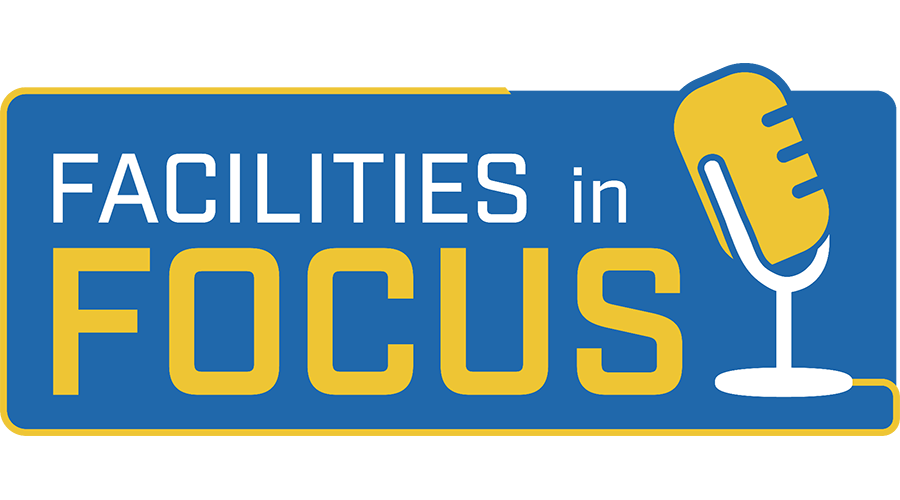How AI Can Deliver Faster, Actionable Facility Insights
For Facility Condition Assessments, AI can quickly perform labor-intensive tasks, freeing up FM’s time for analysis and action.
By Billy Holder, Contributing Writer
Facility Condition Assessments (FCAs) are vital for strategic facilities management, informing decisions across diverse portfolios. However, traditional manual FCAs are time-consuming and inconsistent, especially in complex facilities, consuming resources and delaying insights. The built environment spends an estimated $17 billion annually on inspection labor alone. Artificial Intelligence (AI) offers a powerful alternative, transforming FCAs regardless of facility size. AI-driven tools streamline the workflow, delivering faster, accurate, actionable information, freeing FMs for strategic initiatives.
Addressing FM Concerns: AI as an Augmentation Tool, Not a Replacement
Adopting AI can raise questions about complexity and job impact. Modern AI FCA platforms prioritize user-friendliness, simplifying field data capture with minimal training. The AI handles the complex analysis, reducing the user's technical burden. Regarding job roles, AI excels at repetitive, data-intensive tasks, freeing facility professionals for work requiring human expertise: interpreting findings, strategic prioritization, contractor management, and occupant engagement. AI handles the 'what' (identifying conditions) efficiently, allowing FMs to focus on the 'so what' (interpretation) and 'now what' (action). It's an augmentation tool enhancing FM capabilities, not a replacement.
The Pain of Traditional FCAs
Manual FCAs present significant challenges that scale with facility complexity. The primary issue is time. Assessing large or intricate sites manually can take days or weeks, involving extensive fieldwork and report compilation, pulling staff from strategic tasks. Consistency is another major hurdle; subjective judgments lead to variable data, making portfolio-wide comparisons difficult. Finally, data gaps and inaccuracies increase with scale, risking incomplete or flawed information for critical decisions like capital planning. Traditional methods struggle to provide the reliable, timely data needed for modern facility management.
How AI Streamlines FCAs Across Any Facility Type
AI streamlines FCAs by automating data capture and analysis, irrespective of facility scale. Instead of manual documentation, personnel capture video or photos during a quick walkthrough (often minutes per area). This visual data is uploaded, and AI algorithms intelligently analyze it, identifying assets, detecting anomalies (damage, wear), and transcribing audio notes. This automated analysis processes vast data far faster than manual methods. The AI compiles findings into structured reports, including issues, potential asset lists, and cost estimates, typically within an hour post-upload. Crucially, AI applies criteria objectively and consistently across all areas, ensuring uniform assessments vital for portfolio management. The workflow accelerates dramatically – minutes for capture, an hour for processing – delivering reliable data efficiently.
Reclaiming FM Time for Strategic Wins
Streamlining FCAs with AI fundamentally changes how FMs allocate their time. Reducing hours spent on manual data collection frees teams for high-impact strategic initiatives. This reclaimed time allows focus on data management and analytics, leveraging consistent AI data for deeper portfolio insights. FMs can better tackle sustainability goals and ESG reporting, investing time in planning and compliance. Strategic capital planning becomes more robust, using reliable data to build stronger business cases. There's more bandwidth for workplace design and optimization, enhancing occupant experience. Effective vendor management and crucial team development also benefit. AI unlocks strategic capacity, enabling FMs to drive efficiency, sustainability, and long-term value.
The Quality of AI-Generated Data: Fueling Smarter Decisions:
AI enhances FCA data quality and consistency, fueling better strategic decisions. Unlike subjective manual assessments, AI applies analytical criteria uniformly and objectively every time, eliminating variability. This ensures reliable data for comparing conditions across diverse portfolios or tracking changes over time. AI captures granular detail often missed manually, generating comprehensive potential asset lists and meticulously documenting anomalies with visual evidence. This detail aids accurate lifecycle costing and maintenance prioritization. This structured, consistent data provides a stronger basis for strategic decision-making, making capital plans more defensible and trend analysis more meaningful, transforming the FCA into a source of business intelligence.
Integration with Existing Systems: Creating a Seamless Workflow
AI-generated FCA data is most powerful when connected to existing FM systems like CMMS or EAM platforms. Leading AI solutions offer integration capabilities, turning standalone reports into actionable data within operational workflows. Identified deficiencies can automatically populate the CMMS, triggering work orders and reducing manual entry, crucial for managing large volumes of tasks. Enriching CMMS/EAM asset inventories with AI-captured data improves maintenance tracking and lifecycle management. This connectivity creates a unified data environment, reducing errors and ensuring FCA insights are readily available for daily operations and planning, bridging the gap between assessment and action.
Conclusion: Embracing a Smarter Future for Facility Assessments
Traditional FCAs struggle with time, consistency, and data depth, especially in complex facilities. AI offers a transformative solution, automating documentation and reporting via intelligent visual analysis to deliver consistent, objective, detailed insights rapidly. This improves data quality for smarter strategic decisions – from maintenance optimization to capital planning and sustainability efforts. AI acts as an augmentation tool, empowering FMs by handling repetitive tasks, freeing them for high-value strategic work. Integration with CMMS/EAM systems further streamlines workflows. Embracing AI for FCAs is a move towards working smarter, enabling FMs to elevate their strategic contribution.
Billy Holder, CFM, has over two decades of hands-on experience in facility management and construction
Related Topics:












